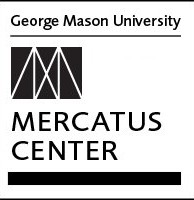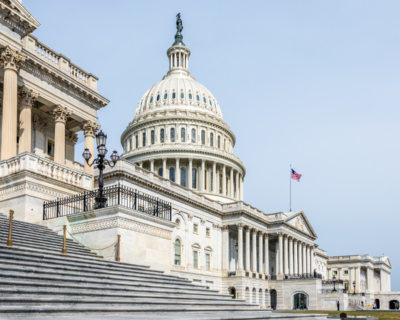
How Louisiana’s Occupational Licensing Requirements Reduce Opportunity and Prosperity
Louisiana licenses more moderate-income jobs than almost any other state
Louisiana ranks 6th worst in terms of burdensome occupational licensing requirements, according to the Mercatus Center at George Mason University’s report Freedom in the 50 States.
The Institute for Justice (IJ) has described occupational licensing as “government permission to work in a particular field.” Unfortunately for many Americans, this permission is not easily obtained.
Often times, government permission to work forces job seekers to complete a number of burdensome requirements, such as training, examinations and fees. Supporters argue that these burdens improve product quality and consumer safety, however, research demonstrates that those claims are questionable.
In fact, it has been reported that unlicensed workers are typically as qualified as licensed workers. Further, research shows that occupational licensing has negative effects on consumers and job seekers. License to Work, an IJ report, highlights:
“[A] greater body of work indicates that occupational licenses increase consumer costs and reduce opportunities for workers, particularly minorities, those with less education and older workers who may want to switch careers.”
More specifically, it has been reported that occupational licensing has resulted in cost increases between 5 and 33 percent and could result in up to a 20 percent decrease in job growth of licensed occupations. While alarming, these findings are not surprising – they are common effects of market regulations.
The burden of attaining an occupational license makes it harder for job seekers to enter the workplace. This results in fewer workers, and thus fewer options for consumers, which is the perfect environment for prices to rise. Occupational licenses appear to benefit only those already working in a licensed field by keeping out potential competition.
And considering that occupational associations tend to have political clout, it is no wonder occupational licenses proliferate. Recent reports have estimated that nearly one-third of all United States jobs require a license. Further, a July 2015 report from the White House elaborated:
“Occupational licensing has grown rapidly over the past few years…the share of workers licensed at the state level has risen 5-fold since the 1990’s…about 2/3 of this change stems from an increase in the number of professions requiring a license.”
In that vein, a 2015 report from the Bureau of Labor Statistics (BLS) found only 8 instances of state-level de-licensing – a term BLS uses to describe the elimination of occupational licensing laws by legislative action – over the past 40 years. None of these occurred in Louisiana.
According to the report, the only positive change that has occurred in Louisiana was the scaling back of the scope of an occupational license – Louisiana no longer requires one to be a licensed funeral director in order to sell burial caskets.
This change did not come from legislative action, but rather a legal challenge brought on by the brothers of Saint Joseph Abbey and the Institute for Justice. IJ’s website explains:
“This case arose when the brothers of Saint Joseph Abbey…began to sell their handmade wooden caskets in late 2007 to support their educational and health care expenses. The state board moved to shut down the monks’ fledgling business before it sold even one casket because it was a crime in Louisiana for anyone but a government-licensed funeral director to sell caskets to the public. The monks and IJ brought suit in federal court on the ground that this arbitrary restriction served no legitimate public purpose and existed only to funnel money to the funeral-director cartel.
We won at the trial court in 2011 and at the 5th U.S. Circuit Court of Appeals in 2013…The U.S. Supreme Court rejected the Board’s petition for review.”
While this change was noteworthy, the Pelican State still has a long way to go in terms of removing unnecessary obstacles that face workers and entrepreneurs.
Indeed, IJ’s License to Work – which focuses on low- and moderate-income occupations – notes that Louisiana licenses “71 out of 102 moderate-income occupations licensed.” The report highlights that 71 is more than any other state, which is why IJ found Louisiana to be the “8th most extensively and onerously licensed state.”
The report also notes that 29 of the 71 moderate-income occupations licensed in Louisiana require licenses in fewer than half of the states across the country. Of these 29 occupations, 17 are licensed in 10 states or less, with Florists being licensed in Louisiana only.
Occupations licensed in Louisiana, but less than 10 other states are listed below:
| Moderate-income Occupation | Number of States Requiring a License |
| Florist | 1 |
| Home Entertainment Installer | 3 |
| Interior Designer | 4 |
| HVAC Contractor (Residential) | 5 |
| Shampooer | 5 |
| Sheet Metal Contractor (Residential) | 7 |
| Tree Trimmer | 7 |
| Terrazzo Contractor (Residential) | 8 |
| Cement Finishing Contractor (Residential) | 9 |
| Drywall Installation Contractor (Residential) | 9 |
| Floor Sander Contractor (Residential) | 9 |
| Glazier Contractor (Residential) | 9 |
Many of these professions do not require a four-year college degree, and are great opportunities for Louisianans looking to enter the workforce or change jobs. If these careers did not require a license, these Louisianans – who already have fewer job options – would be much more likely to succeed.
With that in mind, it seems occupational licensing reform could play a role in solving one of the main problems with Louisiana’s criminal justice system: high recidivism rates. As many ex-offenders have a hard time finding a job, fewer barriers to gainful employment would reduce their odds of falling back into old habits and ending up back behind bars.
For this reason, Act 809 was enacted in 2014 to “allow certain ex-offenders to obtain a provisional, or probationary, occupational license if they are otherwise qualified.” While this Act is helpful to ex-offenders looking to join the workforce and become productive members of society, a logical follow up step would be to de-license more occupations, with a special focus on the 29 occupations that fewer than half of the other states license.
While this is certainly not a comprehensive list of everything Louisiana must to do improve its regulatory climate, it would make it possible for more Louisianans to earn a living and offer consumers the benefits of more choice and competition.



